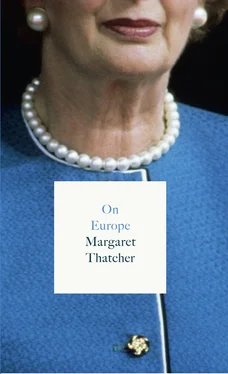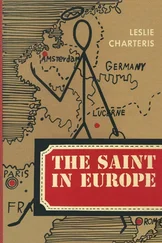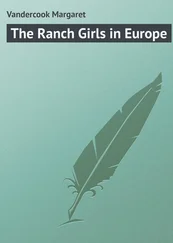The movement towards a bureaucratic European superstate – for no other term adequately serves to describe what is emerging – has huge implications for the world as a whole. Yet I am repeatedly struck on my travels outside Europe by just how little understanding there is of this. At least until recently, the main attention which the issue received in America or in the Far East related to the nuts and bolts of trade agreements. And when successive British governments – not least that which I led in the 1980s – were seen to be at odds with the rest of Europe, and particularly with the dominant Franco–German axis, that was put down merely to the quirks of history or to the ordinary jostling of national interests.
That perception is now changing, particularly in Washington. And not a moment too soon. It is one of the great weaknesses of reasonable men and women that they imagine that projects which fly in the face of commonsense are not serious or being seriously undertaken. The creation of the new European superstate is a case in point. It is time for the world to wake up to it; if it is still possible, to stop it; if it is not, to contain and cope with it.
THE EUROPEAN IDEA
Bismarck, who makes several appearances in these pages and whose opinions on such matters should be taken seriously, knew exactly what to make of appeals to European idealism. ‘I have always,’ he observed, ‘found the word “Europe” in the mouths of those politicians who wanted from other powers something they did not dare to demand in their own name.’ 3This too has been my experience.
The concept of Europe has always, I suspect, lent itself to a large measure of humbug. Not just national interests, but (especially now) a great array of group and class interests happily disguise themselves beneath the mantle of synthetic European idealism. Thus we find an almost religious reverence for ‘Europe’ accompanied by a high degree of distinctly materialistic chicanery and corruption. I shall try to explain the low-mindedness later. But here it is the high-mindedness that accompanies it which concerns me, because it is actually the more disturbing in its consequences.
It is often said that the origins of the European project should be traced back to the post-war determination of a number of Continental European politicians, officials and thinkers to build a supra-national structure within which future wars in Europe would be impossible. To this end, France and Germany would be locked together, initially economically, but by incremental steps politically too. And, of course, this impulse was indeed historically important. It was the basis of the first stage of the European plan – the European Coal and Steel Community established on 18 April 1951 – conceived by Jean Monnet and Robert Schuman. It was then manifested in the famous (or notorious) preamble to the Treaty of Rome, signed on 25 March 1957, which sought ‘ever closer union’. And it has persisted and grown in strength up to the present day, when a federal European superstate is on the verge of creation. One should add that this was not the only impulse at work throughout that period: it was not, for example, my goal, or as I then believed the Conservative Party’s goal, in the seventies, eighties and nineties. But the fact is that it is the ideas of Monnet, Schuman, de Gasperi, Spaak and Adenauer – not those of Thatcher (or even de Gaulle and Erhard) which have ultimately prevailed. 4
My point here, however, is that the impulse to create a European superstate was not simply that of avoiding war in Europe. It was a good deal older than that. Nationalism is often condemned as providing an excuse for the persecution of national minorities. But supra -nationalism should be still more suspect, because it provides a doctrine for the subjugation of whole nations. So it has proved in Europe. At the height of its power in the sixteenth century, the Habsburg Holy Roman Empire, for example, aspired to universal domination. The initials A-E-I-O-U ( Austria est imperare orbi universo – Austria is destined to rule the whole world), the Habsburg motto, famously summed up that ambition. But, in practice, it was only partially and fleetingly realised. Then for a still briefer period, though with much bloodier thoroughness, Napoleon Bonaparte bestrode the continent of Europe. It is not simply that the language was French which makes the Napoleonic programme for European unity seem so contemporary. For example, among Bonaparte’s aims was, he said, to create ‘a monetary identity throughout Europe’. He later claimed that his common legal code, and university and monetary systems, ‘would have achieved a single family in Europe. No one would ever have left home while travelling.’ 5The President of today’s European Central Bank could hardly have put it better.
Adolf Hitler can with good reason be seen as following in Napoleon’s footsteps in his ambitions for European domination. Indeed, the Nazis spoke in terms that may strike us as eerily reminiscent of today’s Euro-federalists. Thus Hitler could refer contemptuously in 1943 to ‘the clutter of small nations’ which must be eliminated in favour of a united Europe. 6
It is not, of course, my suggestion that today’s proponents of European unity are totalitarians, though they are not well-known for their tolerance either. What we should grasp, however, from the lessons of European history is that, first, there is nothing necessarily benevolent about programmes of European integration; second, the desire to achieve grand utopian plans often poses a grave threat to freedom; and third, European unity has been tried before, and the outcome was far from happy.
In reply to this, it will certainly be said that the purpose of today’s projected European political union is quite different, because it is not to be achieved by force, and because its proclaimed rationale is to preserve peace. But this argument is no longer convincing, if indeed it ever was.
It is surely questionable whether either the European Coal and Steel Community, or the European Common Market, or the European Economic Community, or the European Union – let alone the incipient European superstate – played or will play any significant role in preventing military conflict. A defeated, divided and humiliated Germany was not in any position to cause trouble during the Cold War years – and it is a very long time indeed (since Napoleon, in fact) since any power other than Germany ever caused wars in Europe. The threat during the Cold War was, rather, from the Soviet Union, and it was an American-led NATO, not European institutions, which preserved Western Europe’s peace and freedom. Even today, it is still true that an American military presence in Europe is the most important guarantee of the Continent’s security, both in the face of threats emanating from the former Soviet Union and from any renewed German ambitions – not that I wish to exaggerate those dangers at present either. Finally, it does seem to be stretching the pacifist credentials of the Euro-enthusiasts beyond credibility to maintain that a united Europe is necessary to keep the peace, when it is energetically seeking to become a major military power.
The idea of Europe would, though, not have as powerful resonance if it was merely associated with cartels, Commissioners and the Common Agricultural Policy. As someone who has come to be profoundly disillusioned with and suspicious of all that is done in the name of ‘Europe’, I fully recognise this. The European myth is no less powerful for being that – a myth. And its power stems from its association in many people’s minds with most of what goes to make up civilised living. For example, the contrast is often made, particularly in France, with the alleged vulgarity of American values. In the eyes of many Euro-enthusiasts, Europe vaguely represents ideas of law and justice that stem from the Greek and Roman eras. For the aesthetically minded, it is Gothic cathedrals, Renaissance paintings and nineteenth-century classical music that hold sway. The European idea is, it seems, almost infinitely variable. Therein lies its appeal. If you are pious, it is synonymous with Christendom. If you are liberal, it embodies the Enlightenment. If you are right-wing, it represents a bulwark against barbarism from the Dark Continents. If you are left-wing, it epitomises internationalism, human rights and Third World aid. But the fact that this portentous concept of Europe is so infinitely malleable means that, in truth, it is simply empty.
Читать дальше












